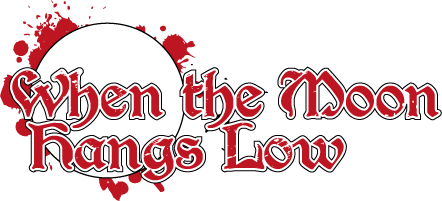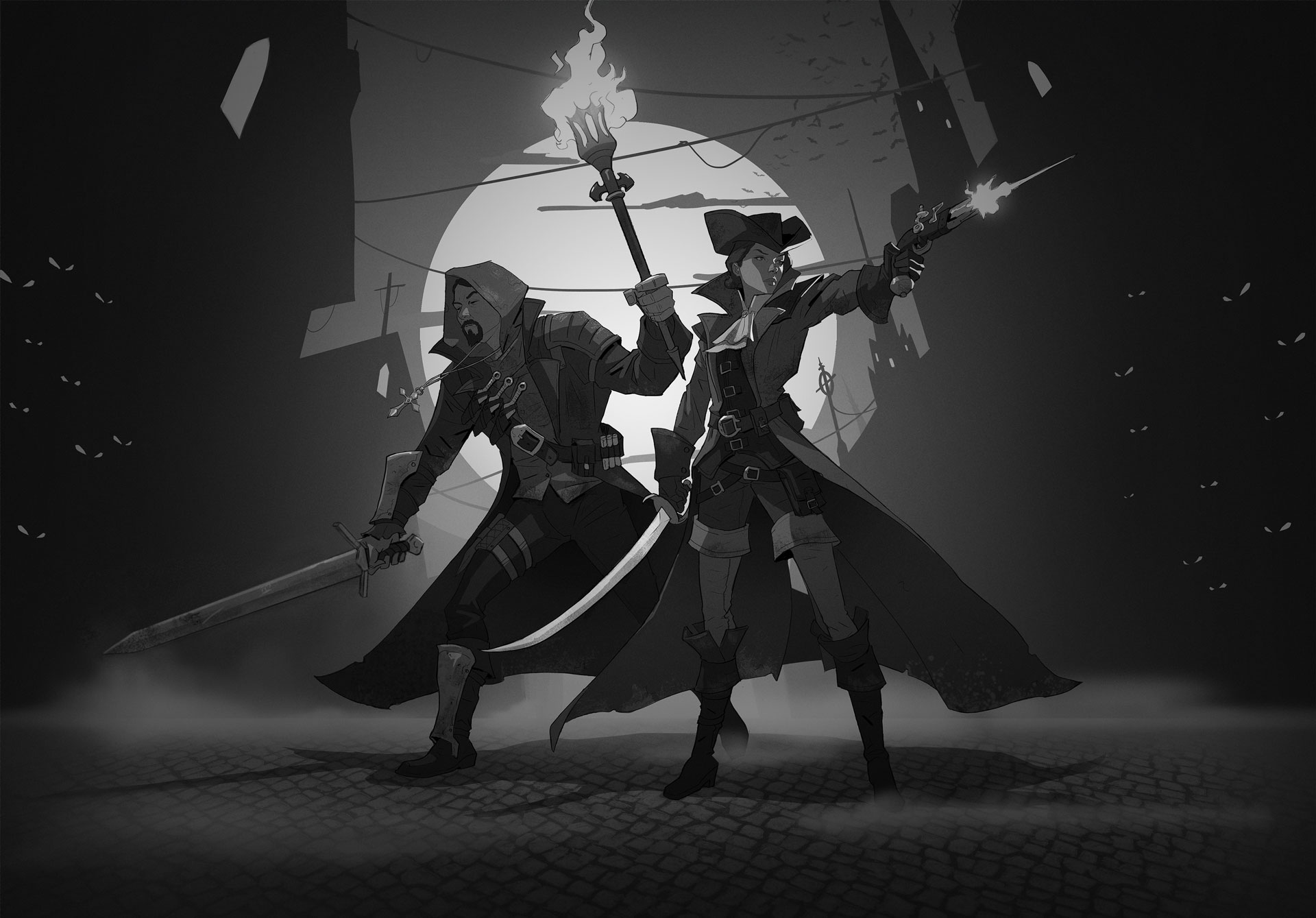The core rules of When the Moon Hangs Low are intended to be easy to learn and also help capture the action-adventure feel the system is intended to embrace. It is not a simulationist system, but one for more pulpy action where only a few rolls are required to understand the outcome of a given situation.
Statistics
All characters have three primary statistics which describe their innate physical, mental and social abilities. These stats are rated numerically from one to five, with human average falling around two in each stat. Stats of five are extremely rare, and represent someone who is at the peak of human achievement in that particular area.
Physique is a measure of a character’s physical strength, agility and general constitution. Characters with a high Physique will find tasks such as climbing, combat and stealth easier than those with a lower score.
A character’s Intellect score shows a combination of their intelligence, common sense and general reasoning power, as well as governing how sharp their senses are. Characters with a high Intellect will find skills such as alchemy, occult knowledge and awareness easier than those with a lower score.
The Presence stat combines a character’s charisma, empathy and force of personality. Characters with a high Presence will find skill checks relating to interaction and leadership much easier than those with a lower score.
Skills
While stats represent a character’s innate abilities, skills represent a character’s learned proficiencies and knowledge.
Skill Levels
A character can have a skill at one of three levels; Untrained, Trained and Mastered. All characters begin with every skill as Untrained. Any character in When the Moon Hangs Low can make a check against any skill regardless of their proficiency, however, characters who are trained in a skill will find it much easier to succeed. Characters who have mastered a skill will find it easier still.
Skill Checks
Skill checks are made by rolling a number of six-sided dice (d6) and counting the number of ‘successes’ in the roll. When using an Untrained skill a success is any die that rolls a 5 or a 6. If a character is Trained in a skill then a success is any die that rolls a 4, 5 or 6. If a character has Mastered a skill then a success is any die that rolls a 3, 4, 5 or 6. For a skill check to be successful the number of successes in a roll must equal or exceed the Difficulty Value (DV) set by the Gamemaster. The number of dice rolled for a skill check is equal to the number of points the character has in the stat associated with that skill.
If a character is using equipment that would help them, or if certain situational effects make the task they are attempting easier, then the Gamemaster can tell them to add bonus dice to the roll.
Penalty Dice
Sometimes when a player character makes a skill check the Gamemaster may ask them to add a number of Penalty dice to the roll.
Penalty dice are used to represent environmental or situational effects that make a skill check harder. Darkness, distractions, or fear are examples of factors that may result in a Penalty dice.
The Penalty dice should be rolled separately to the normal skill dice when making a check, or if rolled together they should use dice of a different colour to differentiate them. A Penalty die that results in a 5 or 6 cancels out one success rolled on the normal skill dice.
Knacks
Some people are just innately better at a particular skill than others. Every character has three Knacks; these are attached to three separate skills and represent the fact that those skills are where that character naturally excels. When using a skill they have a Knack for, a character adds two additional dice to their roll.

